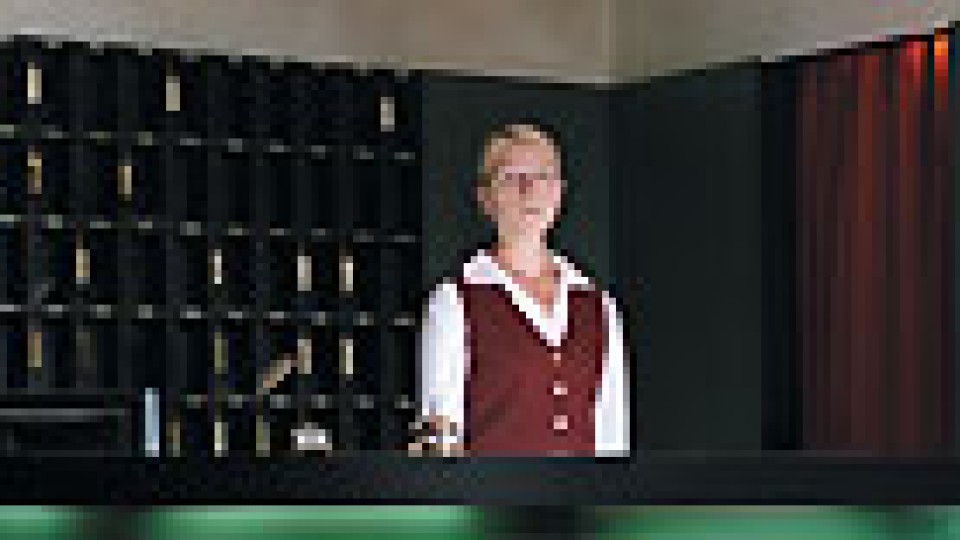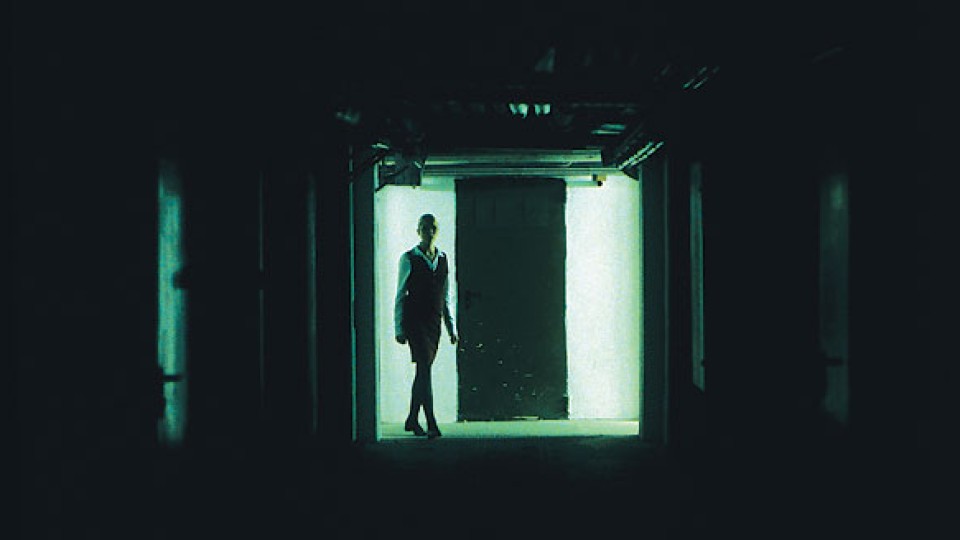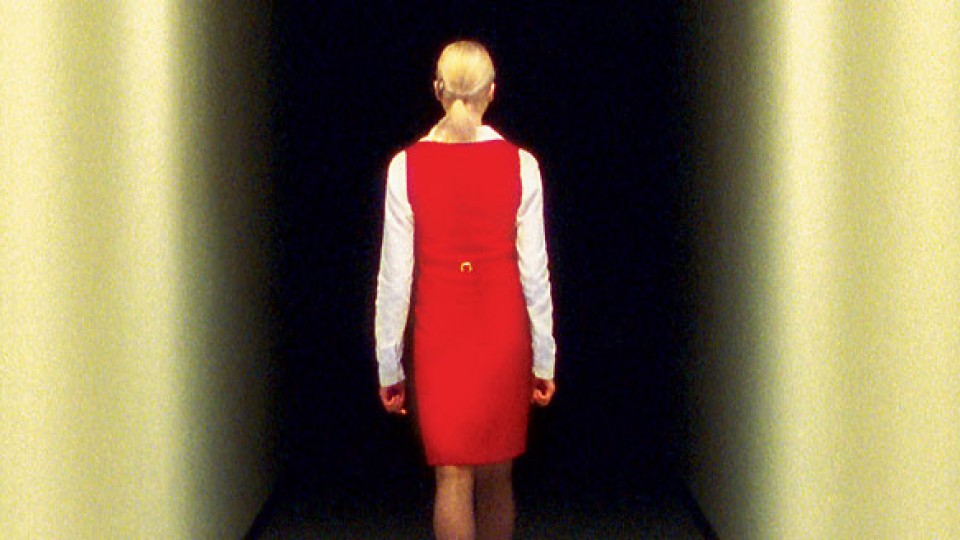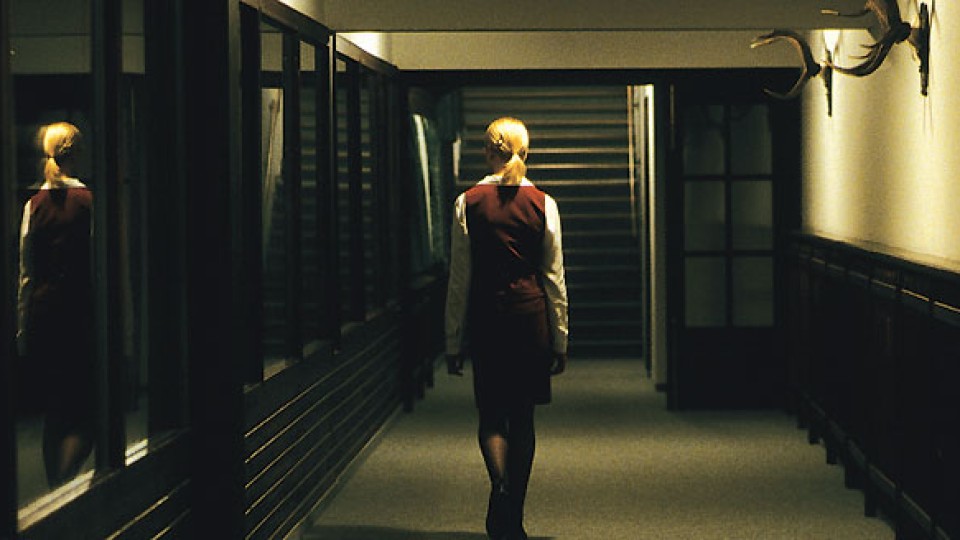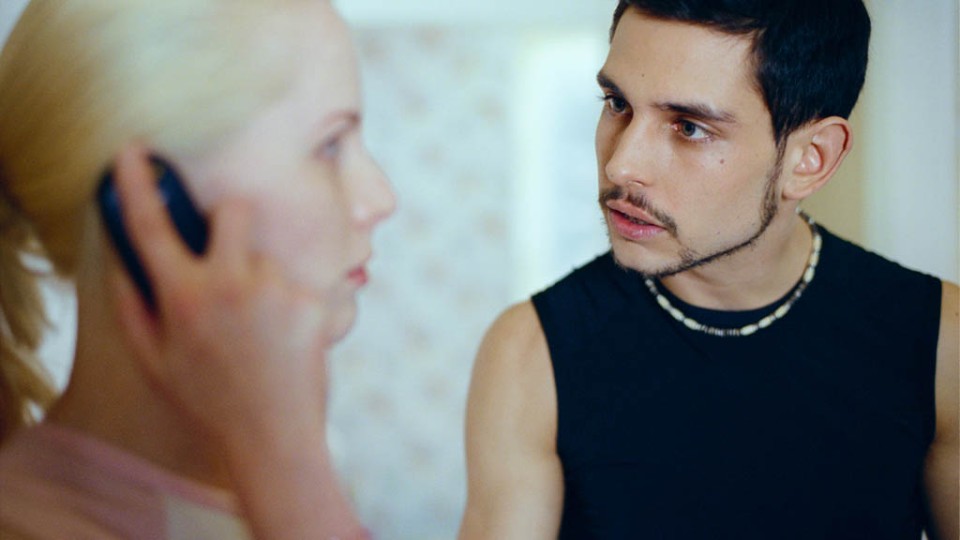«I want to tell a story about a nightmarish situation, at the same time without giving the audience an opportunity to attribute it to a concrete circumstance. The thriller genre was chosen so as to justify a claim that something terrible is happening – this also evokes in the audience a foreboding of what might happen next. But an answer is never provided. I thought it was exciting to say that this is a genre film but it's told realistically and there's no monster at all.»
Was your intention with Hotel to make a true genre film, namely a thriller?
JESSICA HAUSNER: What I wanted was to tell a story about a nightmarish situation without giving the audience an opportunity to attribute it to a concrete circumstance. What interested me most was a weird atmosphere, terror, a threat which can't be explained and is therefore rooted neither in the explicable nor in everyday life nor in reality. The genre makes it possible to claim something horrible is there, and at the same time I didn't exploit this claim at all. Everything remains completely realistic, but the terror is hidden somewhere. That's why I thought of employing the genre, with the idea that it can imply something or evoke a foreboding in the audience about what might happen next - that can lead to a question mark, but an answer is never provided. It was exciting for me to say that this is a genre film but it's told realistically and there's no monster at all.
Doesn't that mean the film must be extremely suggestive?
JESSICA HAUSNER: That will be determined by the editing. The question will be how this comes together in the right way. Of course a strong pull must develop so that all these associations can be created.
I would assume that also involves extensive preparation with the cameraman, Martin Gschlacht.
JESSICA HAUSNER: Definitely. We worked very intensively on setting up the shots. What interests me very much is film grammar, because I want
to tell my story through film. Not within the scenes themselves. This was almost absurd during shooting, because we shot just
fragments at a time. These "Aha!" moments don't happen with my films, when one scene is finished and you can say, "That turned
out well" - instead there are just looks, gestures, steps and subjective views. It's completely chopped up, but that's
what I find incredibly interesting and what I prepared intensively with Martin. We drew the scenes in the storyboard and worked
out this patchwork scenario which will be made into a whole only after the editing process. This so fascinating for me because
I have the sense that this joining of images is decisive - it's like magic and I'm looking forward to doing tricks.
Do you develop the storyboard together?
JESSICA HAUSNER: The first thing I do is put together a version on my own which serves as the starting point for working with the cameraman.
The screenplay's only purpose is that everything's written down in concrete form so that I can communicate it to others. The
actual foundation for shooting is the storyboard - a great deal of the screenplay is discarded and replaced by new material.
Only after seeing the images do I realize how the story can be told and what's necessary. I often simplify the screenplay
even further by drawing the storyboard, cutting scenes or realizing that certain complicated things could be more direct.
Watching you during a shoot leaves the impression that you're extremely precise when you have a concrete idea, though room is still left for variations.
JESSICA HAUSNER: That's right. I do have a concrete idea. I prepare the night before a shoot by intensely concentrating on what kind of effect,
what kind of feeling the scenes we're going to shoot should create and their meaning in the screenplay. Then I go over the
scenes with the actors and rehearse, which shows me what happens with them, what's possible and what they can do. When the
"meat" is there, I become very precise and try to get everything down exactly so that what I intend to express is really there.
Sometimes it's just a struggle for credibility, sometimes it has to be done again and again until the rhythm's just right.
Do you rehearse before shooting starts or just on the days of a shoot?
JESSICA HAUSNER: Before shooting starts too, but that's just to make sure that everything's been tried out already. I talked to Birgit Minichmayr
about acting once. She said that, in theater, the actor sets the rhythm, and scenes are rehearsed until the ensemble does
the editing, so to speak, and the first reaction comes from the audience. With film on the other hand she has the impression
that the director is the first person to react and the actor is merely a cog in a machine which is almost too big to comprehend.
In my opinion that varies from film to film. But that's exactly how it was with Hotel. When individual glances or looks are
involved, how fast someone looks from right to left when they don't know where to look because what they're seeing will be
shot somewhere completely different three weeks later. Of course there are other methods with which rehearsing is much more
important.
You're very patient and relaxed on the set....
JESSICA HAUSNER: Yes, definitely. It's a lot of fun for me that some people take a chance with this. It's a big adventure for amateurs, suddenly appearing at a film shoot in costume and having to play a part. Once again I was amazed by the amateurs. It's so surprising how the belief you project onto a person comes back at you. As long as I have doubts about someone, it becomes obvious in the acting. But as soon as you decide to use a person, a lot of things happen and they improve even more. On the day the two scenes of the hotel staff eating were shot, only amateurs were on camera. Ms. Waissnix for example is the co-owner of Thalhof, where we were shooting, she plays Ms. Erika. I met her for the first time while inspecting the location, and I immediately thought to myself, that's Ms. Erika. Then I hesitated for a long while because I knew that she had never had anything to do with film, and I thought to myself, she might not want to do it at all, but then I finally did ask her. She was extremely impressed, and she just pulled everything out of her hat for the camera. But then all the scenes had been rehearsed earlier that week, and preparing everything so well paid off, it wouldn't have worked without a rehearsal.
How did you decide on Franziska Weiß for the lead?
JESSICA HAUSNER: I saw her in Dog Days and then asked her to audition for another project where she had to read a text. I was surprised and touched at what unbelievable feeling she has for rhythm and pauses. She really impressed me and I thought about her constantly while writing. She was excellent for the part in this film, this determined and open individual, this Irene, who somehow gets tangled up in this situation and who has such a strong desire to work her way back out.
The theme also involves rules in groups and how certain members of a group are turned into outsiders by the others.
JESSICA HAUSNER: That was also a theme, of course - I don't want to tell a story about something that doesn't exist. What both stories have in common is that they're about an extremely ultimate form of solitude. This is a theme I think about a great deal. I have the sense that we try to belong together and develop relationships with other people to avoid the feeling of being alone. In the final analysis that's the most important thing that people fool themselves about, being all alone and feeling out of place in this world. This is a theme I think about a lot, it's definitely a major theme in Hotel.
What was is like to direct your second feature-length film, what was different?
JESSICA HAUSNER: Hotel was completely different from Lovely Rita, and this time I had a completely different feeling. I was a lot less naïve, I spent more time thinking about the editing while shooting it. This time I also tried to keep the big picture in view, which involved much more effort. With Lovely Rita I tried things out to see what was possible. This time there are lots of things that could bother me about the editing, even before starting. Karina Ressler has already made a rough cut.
Do you do many takes, or completely different versions?
JESSICA HAUSNER: We shot variations of certain scenes, definitely with the editing in mind but also because of this film in particular. A very important thing about the dream sequences is that Irene sees herself in the dreams. The question of how the shots should be set up was extremely complicated: For example, how will she walk along the dark hallway. We tried various focal distances and shooting speeds to have a choice for editing, such as what's the best way to differentiate between one Irene and the other, how can I explain this geography in the best way possible?
How did you set up the shots for the dream sequences?
JESSICA HAUSNER: There isn't a defining esthetic characteristic for the dream, there's just the editing. I was thinking a great deal about Maya Deren and Meshes in the Afternoon, which I love a lot, because these well-known feelings of a dream are created through the rhythm and the editing. There are scenes where the woman goes to a certain spot, starts walking in place, she starts off, then cut, and there she is again and starts walking again. I think that's just wonderful because the reality, the sense of space and time are all muddled. You have to be very precise and have everything just right before the dream can begin, breaking everything down subtly and in a subliminal way. So that I say to myself, wait, when I turned to the right there, there was something there, why am I walking to the right again and I'm here and here all of a sudden, subliminally slipping into it so to speak.
All in all shooting was rather difficult with so many locations and the winter weather late in October.
JESSICA HAUSNER: We shot at the hotel in Gösing as our main hotel, we shot the reception desk at Thalhof in Reichenau, then we shot in Gloggnitz, at the Parkhotel Schönbrunn in Vienna, and then there were some exterior shots. We wanted to do the exterior night shots in Gösing at the end of October but then there wasn't enough time and we finally managed to make up for it on the second-to-last day of shooting at the end of November, it was ten degrees above zero, thank God. It was extremely strenuous for Franziska. She was on camera every day and she held up really well. If you just imagine what the hotel uniform was like and the scene where she has to appear as Irene, where she's standing outside, smoking a cigarette and looking into the woods. It's easy to talk about, but she had to spend two days shooting that, standing outside all night in a white blouse and below-zero temperatures. We were all bundled up but for her it was "Take your coat off" and "Action" every five minutes - there were times during the last week when it was close.
What is the schedule for post-production like?
JESSICA HAUSNER: According to the schedule we would like to be finished in spring or summer. That also depends in part on the extremely interesting sound design which will be created for it. I'm not the fastest person in the world, editing might take a little longer than expected, and the sound design takes time because they have to try it out and perform it for a test audience. The effect of the music and sound can only be judged at a certain distance, that requires a step back and pauses.
Interview: Karin Schiefer (2003)

